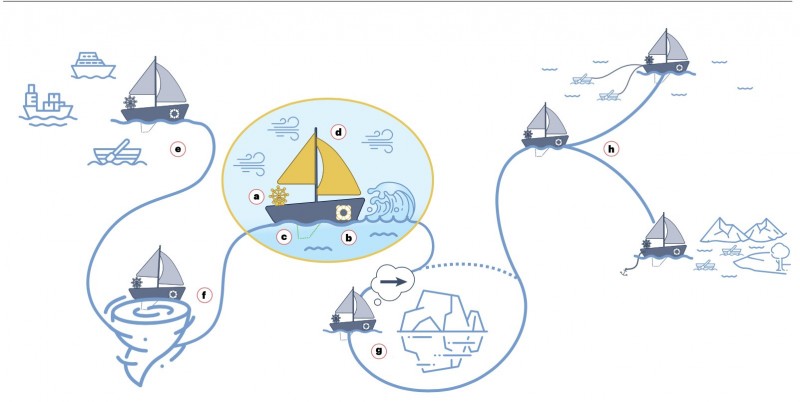News Details

We live in the midst of multiple interconnected crises, from climate change and biodiversity loss to the energy crisis and the COVID pandemic. In an article published in Nature Sustainability, Guido Caniglia and a group of international sustainability scientists and practitioners argue that universities need to embrace a radical mindshift in order to train the next generation of researchers to deal with the complex challenges of today and tomorrow's world.
The authors claim that the Ancient idea of practical wisdom may be of help here. According to Ancient Greek philosophers, this is the central virtue of citizens involved in public and social life. Practical wisdom is the capacity of navigating complex and contentious situations. It is the ethical compass that can help to get oriented when making decisions and taking action despite uncertain knowledge and conflicting values. To support this claim, they show how practical wisdom can help researchers deal with pressing real-world problems, such as: food systems in South Africa, biodiversity conservation in Maori Indigenous lands, green spaces in small German towns, and water pollution in Hungary.
The paper proposes that universities and research institutes embrace practical wisdom and abandon competition and productivity-based values typical of today’s academic culture. "If research institutions want to be viable leaders in today’s world and fulfil their commitment to serving the public good," states lead author Guido Cagnilia, "they need to invest more and better in creating the conditions for cultivating practical wisdom." Practical wisdom can help universities to become powerful actors of change in today’s world.
Publication
Caniglia G, Freeth R, Luederitz C, et al (2023) Practical wisdom and virtue ethics for knowledge co-production in sustainability science. Nat Sustain. https://doi.org/10.1038/s41893-022-01040-1

